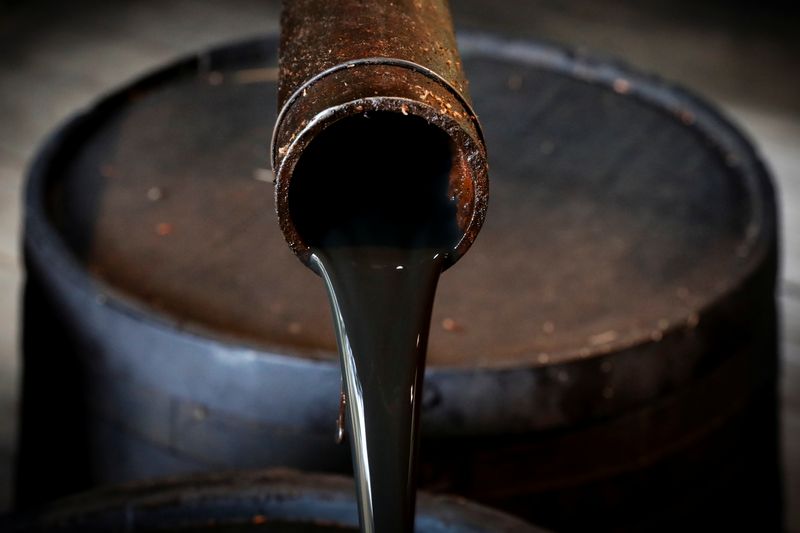By Laura Sanicola
(Reuters) -Oil prices settled up by over $2 per barrel on Wednesday on signs of tighter supply, a weaker dollar and optimism over a Chinese demand recovery.
Capping gains, the OPEC+ decision to hold its Dec. 4 meeting virtually signals little likelihood of a policy change, a source with direct knowledge of the matter told Reuters on Wednesday.
Brent crude futures settled up $2.40, or 2.8% to $85.43 per barrel while U.S. West Texas Intermediate (WTI) crude futures settled up $2.35, or 3.01%, to $80.55.
Support followed expectations of tighter crude supply.
U.S. crude oil stocks plunged by nearly 13 million barrels, the most since 2019, in the week ended Nov. 25, according to the Energy Information Administration. [EIA/S]
But heating oil demand fell for the second consecutive week heading into winter, curbing price support.
"Running all that crude oil through the refinery, you’re going to process a lot of distillate ... there is some reason for concern here," said Bob Yawger, director of energy futures at Mizuho.
Likewise, U.S. oil output climbed 2.4% to 12.27 million barrels per day (bpd) in September, government figures showed on Wednesday, the highest since the onset of the COVID-19 pandemic.
The International Energy Agency expects Russian crude production to be curtailed by some 2 million barrels of oil per day by the end of the first quarter next year, its chief Fatih Birol told Reuters on Tuesday.
Russia would not supply oil to countries imposing a price cap, Russia's foreign ministry spokesperson Maria Zakharova said.
On the demand side, further support came from optimism over a demand recovery in China, the world's largest crude buyer.
China reported fewer COVID-19 infections than on Tuesday, while the market speculated that weekend protests could prompt an easing in travel restrictions.
Guangzhou, a southern city, relaxed COVID prevention rules in several districts on Wednesday.

A fall in the U.S. dollar was also bullish for prices. A weaker greenback makes dollar-denominated oil contracts cheaper for holders of other currencies, and boosts demand.
Fed Chair Jerome Powell is scheduled to speak about the economy and labour market on Wednesday, with investors looking for clues about when the Fed will slow the pace of its aggressive interest rate hikes.